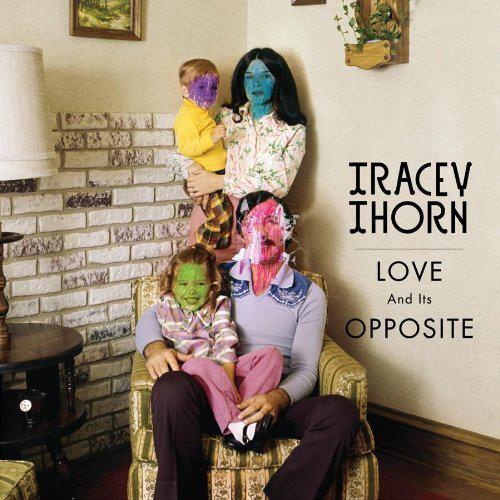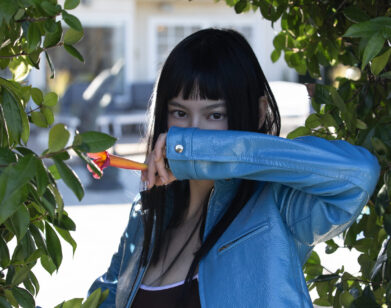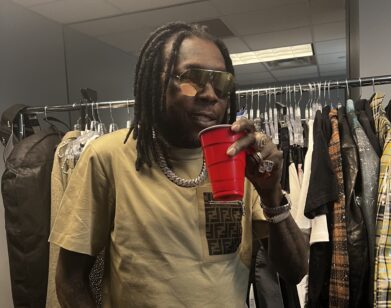Tracey Thorn on the Hit Factory

Most people know Tracey Thorn as the voice behind Everything but the Girl, the band she fronted (with husband Ben Watt) for nearly two decades. That band sprang to global fame when the 1994 song “Missing” became one the biggest selling singles of the decade, largely on the strength of Thorn’s voice. That same voice and unmistakable delivery would help Massive Attack achieve huge success for their 1995 single “Protection,” which remains a high benchmark in the history of British pop. Sweetly melancholy and effortless, Thorn could sing the phonebook. Luckily, she has a new album of songs to sing instead. Her first solo outing in over three years, Love and its Opposite, sees release next week.
T COLE RACHEL: I went back and listened to all your other albums. I remember that when Everything but the Girl’s Amplified Heart came out in 1994, people in the States didn’t know that you had been making music for a long time. Have your feelings about the business of making music changed over the years?
TRACEY THORN: We’ve experienced it at all different levels. At the beginning we had no concept of what the word “promotion” even meant. We did things because we wanted to, not to be part of some campaign. As years went by, we learned the rules–this is how you’re supposed to do it, the single, then the album, then the tour, the video with this, the press release with that. The danger with that is it feels like a treadmill, and you start to feel cheapened by some of it… The situation I’m in now, after having a long break, years when I did not take part in music at all, I have tip-toed back to it.
RACHEL: Was there a point at the height of craziness when it was a bit overwhelming?
THORN: Yes. Toward the end when we were touring quite a lot, I remember saying to Ben, “I’m getting into my mid-30s and we always said we’d have kids, and if we don’t just stop, we won’t.” There were years where we’d say, “We’re on a roll now, let’s just do one more album, one more tour.” We would do just one more thing, but each thing took six months. Then there was the moment when we were on tour in Australia and we got a phone call offering us a support slot on the U2 tour of America, which was the biggest thing we had ever been offered. I just said, “No, because if we do that, I’ll never be able to stop, there’s always going to be one more thing, and that’ll be it. I’ll be 40-something looking back thinking, ‘I never had kids.'”
RACHEL: Did people tell you you were crazy?
THORN: Yeah, and there were also little voices in the back of my head saying, “Maybe I am crazy, maybe this is really stupid.”
RACHEL: You have a history of collaborating with different people. Is that something that still happens a lot, that people approach you to be on your track?
THORN: I get sent lots of dance tracks from people who hope that if they put my vocals on the top it’ll turn into “Missing” and they’ll have a massive hit and that’ll be it, career solved. And I very rarely do any of them, and when they do, they never are a “Missing.” That was a very particular track, and a very particular moment in pop music when the time was right for something like that.
RACHEL: The record, Amplified Heart, had been out for a long time before that single finally took over the world.
THORN: It turned into a creature with a life of its own.There was nothing we were doing to make it happen. We couldn’t recreate it because we never really understood how it happened. People decided they were all going to play it, and you feel like it’s disconnected from you. All we could do was stand back and take the congratulations that came.
RACHEL: I remember talking to Nina Persson from the Cardigans about the song “Lovefool” and she said, “I would never say anything bad about that song, but it was such a double-edged sword. If we had known when we made that song that we’d have to sing ‘Love me, love me’ a million times…”
THORN: You realize what it means to possess a big hit, and I would still rather be the possessor of a big hit than not. I never thought we would have a career in pop music. Ben and I had such a great career, but we’d never had a hit, and suddenly to have one is fun and exciting. It’s like someone unexpectedly wins an Oscar, making movies for years, and had long since given up hoping to give one, and with that came other things that might have been a bit annoying, but I’m sure they’d never not want to win.
Tracey Thorn’s Love and Its Opposite comes out May 18 on Merge Records.






